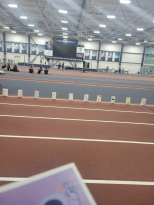Column: Change Coming for NCAA
“There’s nothing wrong with it and you’re not going to convince me that there is something wrong with it.”
That’s how Houston Texans and former University of Tennessee running back Arian Foster described college athletes being paid in an upcoming EPIX documentary, Schooled: The Price of College Sports.
After a summer that was rocked by controversial accusations involving defending Heisman Trophy Winner, Johnny Manziel, being paid to allegedly sign autographs; to the Sports Illustrated investigation of the Oklahoma State football program, the smoke has only grown thicker surrounding the NCAA.
At the forefront of NCAA controversy is whether or not “student-athletes” should start getting paid.
Whether or not you agree players should be paid, there are numerous flaws that need to be addressed with the NCAA and its legislature.
To say the women’s golfer at a West Coast Conference school (who was forced to pay her school back $20 for the value of the hose and water used to wash her car) committed a rules violation, makes about as much sense as penalizing a regular student for taking a take-home test with a group of friends.
Rules may be rules, but there are more important things to monitor than how a student got their car shined up.
The question for schools is simple: do they want to continue to be under the cross-eyed supervision of the NCAA much longer?
If (and when) the BCS conferences and its members decide to break away from the NCAA, the decision to pay its players will more than likely be made by its own governance and board of trustees.
Until that day comes, we’ll just assume the NCAA has the overall say in this dispute on whether they pay players or keep the current system.
There are a few options; the first is to keep the guidelines the same as today and not pay players.
“If you love the sport, why do you need to get paid for it?” asked Coe College senior offensive guard, Nate Yelton.
“Student athletes are compensated with education,” said Sarah Wilkie, a sophomore defender on the Penn State women’s ice hockey team. “As athletes, we should be motivated by our love of sport, not by any type of monetary compensation.”
As we all know, whenever there are rules, there are going to be rule breakers. Boosters and coaches are the main activists in terms of paying players under the table for performances.
When asked about whether or not he would take payments from someone, Kansas State baseball player, Alex Bee was against it. s
“This is a judge of character and integrity considering as athletes we go through strict meetings to know what we can and cannot receive,” said the sophomore catcher. “We know what is right and wrong.”
Coaches and boosters can offer up all the money they want to athletes once they’re at their respective school, but a losing team full of misfits and no-names won’t bring in the money stream, as compared to a national championship contending team.
So how do they get the best recruits to come to their school? Some go to the lengths of trying to be the highest bidder.
Bloomington (IL) High School quarterback Jake Romani has received interest from FCS and FBS caliber programs and is currently in the midst of his recruiting phase.
“If I considered the university, it wouldn't be for the money (if offered any compensation),” said Romani.
“It would have altered my decision,” said Wilkie. “If money was included there would be an unequal focus on ‘athlete’ and ‘student’. Education is the proper form of compensation provided to student athletes.”
Does the, “if you’re good at something, don’t do it for free” mantra apply here?
Or is the satisfaction of playing a sport everyone wishes they could do at such a high level enough?
“If you are good enough to be making money off of your own brand you will be getting paid to play your respected sport in the near future,” said Bee.
Now the other solution to consider for the NCAA is what if they decide to start paying its athletes?
In the 2011-12 academic year, the number of college athletes surpassed 450,000 and conferences are signing television deals that are exceeding the $1 billion mark.
So what’s the problem? “If we were offered money, athletes would likely choose the highest bid not the best school,” Wilkie said. “There would be an unequal focus on "athlete " and "student”.”
Exactly.
All this would solve is the institutions with the wealthiest boosters would auction off recruits like pieces of memorabilia. Imagine how much 2017 prospect Dylan Moses would go for to bring his services to a school.
Moses has already given a verbal commitment to LSU, but how much would it take to land his services?
Now, what about the lesser prominent athletes? Would Johnny Manziel make the same amount as a baseball player at Slippery Rock?
“I wouldn’t feel looked down upon,” Yelton said, who was a D3football.com preseason All-American.
So again, does an All-American offensive lineman that plays Division 3, make more than a swimmer from Nebraska? Where is the line drawn?
The only thing I can take away if the NCAA decides to make this decision official, is that the questions and concerns will only grow.
We all are greedy in the terms that we are never satisfied, always wanting more, and players wanting money from the NCAA are no different.
What if a base salary is installed at $2,000 for an athlete. How much longer until someone says they need $4,000, $8,000 or more?
If these are the only two options, then the answer is simple. The NCAA must dissolve from the FBS football programs.
The NCAA is sinking like the Titanic now and treading water, but it won’t be long until the ship is completely submersed in its own corruption.
The NFL should set up a minor league system to develop players that wish to forgo college and focus on football.
Each NFL team could have their own “farm system” similar to Major League Baseball’s model. Players can earn professional contracts and the colleges can allow student-athletes to play as well as receive an education.
Something big is on the horizon that will change collegiate athletics forever. Whether the NCAA is involved, however, remains to be the great unknown.
Ryan Stevens is a sophomore majoring in broadcast journalism. To contact him, email rvs5276@psu.edu.
Keep up to date with the student-athletes at:
Alex Bee - http://www.kstatesports.com/sports/m-basebl/mtt/alex_bee_830558.html
Jake Romani - http://www.hudl.com/athlete/o/1603026/athletics
Sarah Wilkie - http://www.gopsusports.com/sports/w-hockey/mtt/sarah_wilkie_800838.html
Nate Yelton - http://www.coeathletics.com/roster/11/5/3770.php








